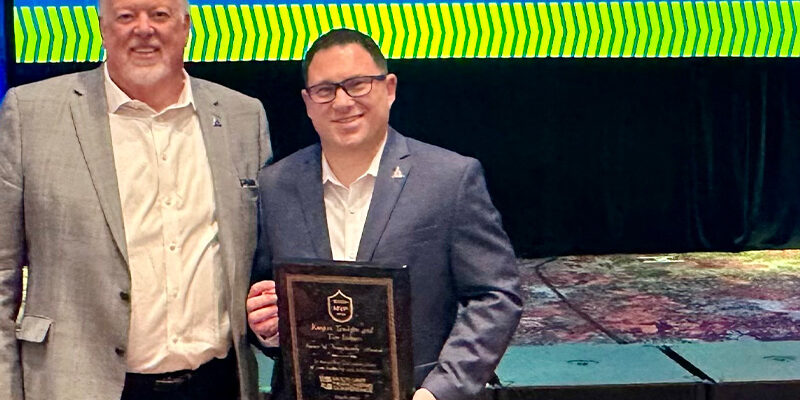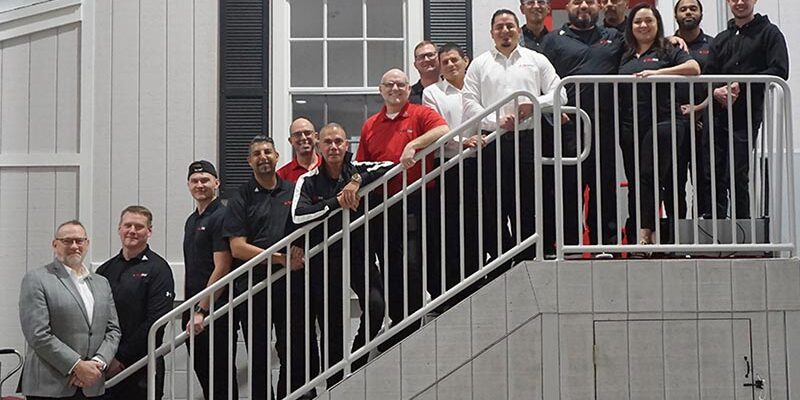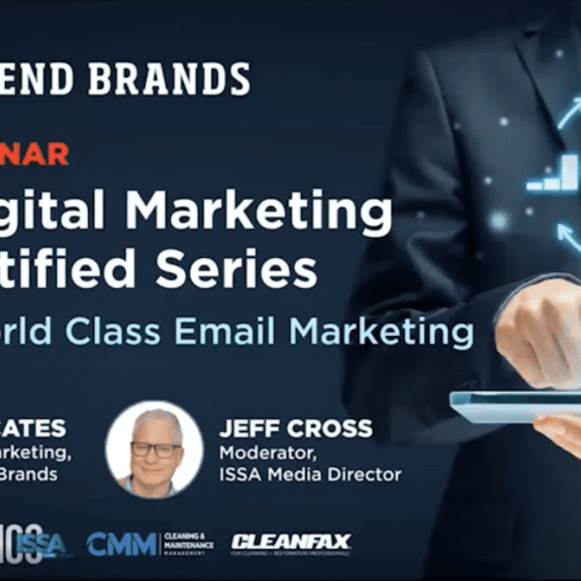How to Prepare for Selling Your Restoration Business

By Seth Vander Woude
The restoration and remediation industry will see many more owners approach retirement age in the coming years. If that applies to you, you may be wondering what’s next. As the time to consider selling your restoration business draws near, it is important to prepare for this transition phase with a succession plan in order to maximize the value of your company and preserve your legacy.
This is an exciting time since entrepreneurs, long-time employees, estimators, and adjusters will get the opportunity to become business owners—and successful sellers will get the opportunity to enjoy the value they’ve created with their families. While change often can bring uncertainty and confusion, proper planning can make the sale and transition smooth and successful.
To start the succession plan process, there are key components to consider: preparing your financial statements, choosing the right buyer, negotiating a fair structure in which all parties win, and picking the right bank. Let’s evaluate these to get a clearer look at what it takes to formulate an advantageous succession.
Preparing financial statements
The purchase price of a business is most heavily tied to the buyer’s perception of how much cash flow the business generates. Therefore, in a succession plan it is important that your financial statements most closely reflect the true cash flow of the business. As business owners, many become experts at minimizing their tax burden and maximizing the amount of eligible business expenses they report—these often include lifestyle expenses such as home offices, vehicles, insurance policies, travel and entertainment, and so much more. While these reduce your tax burden, they may also decrease the verifiable cash flow and the ultimate purchase price of your business. If you are going to deduct lifestyle expenses, make sure to carefully document those expenses and keep receipts in order to maximize the cash flow of your business that you can prove to a buyer.
Choosing the right buyer
There are two critical questions to consider when evaluating prospective buyers:
- Does this buyer have the skills and experience to successfully complete this transaction, take care of clients and employees, and continue the business legacy?
- Does this buyer have the financial means to pay a fair price and close the deal?
Let’s start with choosing a buyer that has the necessary skills and experience to be successful. Sometimes this part of the decision process may be overlooked, but it is often the major contributor to seller’s remorse. Your business is not only your paycheck, but it is also something that you have built for many years and its legacy has significant value to you.
Choosing a buyer that will pay you a fair price is important, but it’s not too much to ask for a buyer that will also take care of your employees, and clients and continue to nurture the company you started. After you sell your company, it can be very rewarding to hear how pleased your employees and clients are with a new direction—and equally as remorseful to hear how poorly things are going.
Sometimes you may be faced with a decision that includes selecting between a buyer who may be prepared to pay a slightly higher price but doesn’t have the skillset to run your business and a another candidate who cannot pay as much but is better suited to the business. Don’t overlook the impact this may have on your long-term happiness in your decision to sell.
Often the best candidates to purchase your business might be right under your nose—a key employee, a family member, a third party such as an adjustor, or even a friendly competitor. If they don’t have the capital to close the deal, it is important to take into account their ambition and determination. These folks, especially a key employee, often know the company model intimately and are best suited to run a restoration business. Before you conclude that person might not be interested or have the financial means, it’s worth having the conversation prior to approaching other third parties.
Negotiating a fair structure
The best succession plans create opportunities for all parties to win. While it is important to maximize the value of your company in a sale, an unfair purchase price or structure could kill a deal during closing or even set a successor up to fail. Remember, the buyer should be able to purchase the business at a price where the cash flow of the business can fulfill all their company obligations, personal obligations, bank debt, and still have enough cushion left over at the end of the day. If your proposed price doesn’t leave enough cash flow for the buyer, the deal will ultimately fall apart.
When negotiating a price and purchase agreement, one tool to consider is involving a third party like a valuation expert, consultant, CPA, or banker. There are several companies that focus on advising restoration contractors and have looked at dozens, if not hundreds, of companies nationwide.
Picking the right bank
At the end of the day, the most critical element of a succession plan is setting the stage to get the capital in place. Both parties want an agreement that is mutually beneficial: The buyer gets the company and the seller gets paid. Ultimately the bank a buyer chooses to partner with makes a big impact.
When interviewing banks, buyers need to ask questions to learn how many small business loans they do and how much of their business is working with restoration contractors. Selecting a bank that has a lot of experience with small business lending, especially in the restoration industry, will eliminate a lot of headaches in the process.
It’s also important to know what type of product that bank is offering: a conventional or a Small Business Administration (SBA) loan. This difference will be important in determining whether the potential buyer will ultimately qualify under the bank’s credit requirements.
Conventional loans are best used in business acquisitions in which the buyer has lots of personal assets and the business has significant equipment, property, and other tangible assets as collateral. Most conventional loans require 20-30% down payment, as well as tangible collateral for a large portion of the loan. In exchange, conventional loans often have a faster process, less paperwork, and competitive rates.
Alternatively, the SBA loan program does not have collateral requirements as part of the loan approval process. The SBA program is a true cash flow-based loan approval. Restoration businesses often have excellent recurring cash flow but are asset-light; therefore, restoration contractors are excellent candidates for an SBA loan. Further, an SBA loan only requires a cash equity injection at loan closing of 10% of the purchase price; making it a great program for buyers who want to preserve capital or who haven’t been able to gather 20-30% of a purchase price in cash.
The SBA also has special provisions for employees that have existing stock in a company that allows for less than a 10% cash injection. Even if a buyer doesn’t’ currently own stock in the company or if a buyer doesn’t have 10% cash to inject, the seller may carry a note for at least 5% of the purchase price of the business, reducing the buyer’s required cash injection to 5% of the purchase price. This may seem like a lot of rules to process, but the primary takeaway is that the flexibility of the SBA program allows for business owners with varying levels of wealth on their personal financial statement to qualify.
Understanding the bank’s role and the various loans available is important not just to buyers, but to you as the seller as well. This knowledge will help you understand if your buyer is the right buyer with the means to close the deal. Additionally, if you have a successor in mind (such as a key employee), this knowledge can be useful as you begin that conversation to help them understand the financing options available that could make the sale possible.
Succession plan takeaways
As you begin to contemplate retirement, these steps are a good guide for starting a succession plan. To maximize the value of your company and preserve the legacy you’ve worked hard to build, these key takeaways will get you on the road to retirement and keep your business prospering for years to come:
- Make an investment in your financial statements and how they are presented in order to maximize your business’ value to a buyer.
- Be open-minded about who can buy the business. If that person doesn’t exist inside of your business currently, you may need to begin grooming a key employee, stay close to your friendly competitors, or consider engaging a business broker or consultant in the industry.
- The right buyer should not only pay a fair price, but should also enhance your business. If a buyer can’t take care of your clients and employees, don’t underestimate the impact this may have on your long-term happiness with the sale.
- A good deal exists when all parties win. If the buyer, seller, customers, and employees all can’t win, something will go wrong.
- Picking the right financing source is critical to getting paid as a seller. Gaining knowledge about various banks and products in the marketplace will allow you to better understand if your deal is fair and if your buyer will ultimately have what it takes to close the deal.
Seth Vander Woude is vice president of lending for Live Oak Bank. He has spent 17 years working for some of the nation’s largest banks. Vander Woude works to meet the financing needs of small business owners in business acquisitions, partner buyouts, expansions, commercial real estate purchases, and more. Based in Minneapolis, he works with borrowers across the nation.












